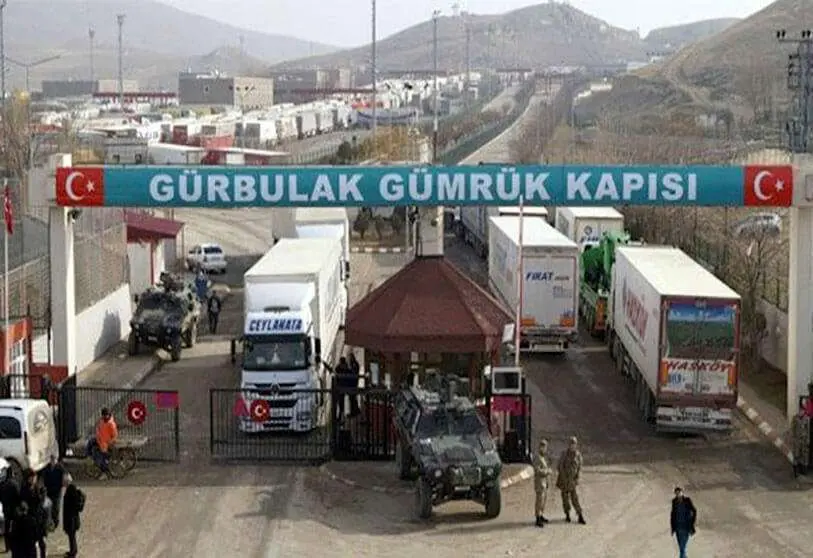Turkey and Iran open land border point again despite risk of coronavirus

There is still a high risk of coronavirus infection in certain areas around the Middle East, but despite this, Iran and Turkey have decided to partially reopen their land border at Bazargan (Gurbulak, as this border crossing with neighbouring Iran is known in Turkish) for the passage of 60 trucks per day on condition that the health protocols agreed between the two sides are respected.
Already in the early hours of Thursday, dozens of trucks loaded with food and commercial items were able to enter Turkish territory after waiting in queues for miles at the border.
The risk is clear and evident, taking into account the numbers left by the COVID-19 disease in both territories, especially in Iran. The Persian country already has around 6,500 deaths and more than 103,000 diagnosed cases; meanwhile, Turkey is listed officially with more than 3,600 deaths and nearly 134,000 affected.

However, this return to pre-breakdown levels of trade may pose a significant health risk to both nations as they seek to alleviate their fragile economic situation. In an attempt to mitigate this, experts are calling for strong protection and hygiene measures to limit the spread of infection among transporters, which could also spread the disease later.
The decision to give the green light at the border crossing for truck access, in the area of the Turkish province of Agri, has come about as a result of telephone conversations held a few days ago between the head of the Iranian Presidency's cabinet, Mahmoud Vaezi, and the Turkish trade minister, Ruhsar Pekcan, to relaunch bilateral trade between the two economies.

Iranian media indicated that both representatives stressed "the need to resume border exchanges and road transport between the two countries with the aim of developing trade relations". Bilateral trade was seriously affected and halted by the outbreak of coronavirus, while hundreds of vehicles had been stranded at the border all this time. In the last two months, during the coronavirus pandemic, bilateral trade had been mainly by rail.
Bazargan crossing was the most active customs point on the border during this time. Right in a conflictive stage, with complaints from Turkish truckers who recently complained about the poor health conditions there and the deplorable treatment given by the Iranian Customs Police, as highlighted by the Arab News media.
Turkey had already closed its four land border crossings with Iran at the end of February, on the orders of Turkish President Recep Tayyip Erdogan in the face of the heavy impact of COVID-19 in the Persian country, clearly the most affected in the Middle East region.

Although the issue of national finances is now beginning to be a concern for several countries due to the halt in activity caused by the COVID-19 health crisis, which forced various governments throughout the world to establish measures of home confinement and social distancing aimed at stopping the spread of the disease. This obviously slowed down economic and commercial activity in many areas. And among these are the Turkish and Iranian protagonists.
The Islamic Republic of Iran, by order of President Hassan Rohani, had already decreed the reopening of intercity highways and large shopping centres several weeks ago in order to begin reactivating its economy, which has been severely shaken by the current health crisis that has caused a general standstill, and which is dragging along previous problems due to sanctions imposed by the United States following the US withdrawal in 2018 from the nuclear pact sealed with Iran in 2015 that limited its atomic programme, especially in the area of weapons. An embargo focused mainly on oil, the main source of Persian funding, which dealt a severe blow to Iran's wealth.

At the end of April, Hassan Rohani warned about the difficult scenario that was approaching. "We urge long-term production planning based on a pessimistic view that we could face this virus for months to come," the Iranian president explained in a meeting with private company executives that was reported on state television. "Maybe we will face this situation until the end of the year, we don't know," added the top leader, referring to the annual period as established in the Persian calendar, which ended in March 2021.
For its part, Turkey has also announced that it will reduce preventive measures against the coronavirus next week in much of the country, with the opening of routes between some virus-affected regions and coastal destinations.








